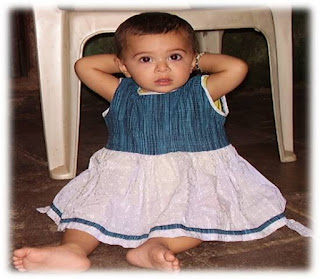Meaning
The word Perception
comes from the Latin word, percipio, meaning “receiving, collecting, action of
taking possession, apprehension with the mind or senses”. Eysenck (1972)
defined perception as a physiological function which enables the organism to
receive and process information on he state of and alteration in the
environment. Perception refers to the process of taking in, organizing, and
interpreting sensory information. Perception is multimodal, with multiple
sensory inputs contributing to motor responses (Bertenthal 1996). It is process
of knowledge extraction. It is the interpretation of stimuli as established by
relating it to earlier perceptual sets which may be by way of experience,
exposure or any other interaction.
Forgus (1966) suggested four
stages of perception.
1. First stage – Physical energy is absorbed by senses.
2. Second stage – The form of physical energy is converted
by neural impulse.
3. Third stage – The nerve impulse when reaches brain
produces activities.
4. Fourth stage – This stage is related to perceptual
experiences of an individual which includes verbal and physical behaviour.
Perceptual Development
Soon after birth the
process of perceptual development starts in the infant which is a lifelong
process. This development gains momentum in childhood. Through perception child
learns and form concepts that helps in thought process.
1. The turning of head by
an infant in response to visual, audio or touch stimulus is type of perception.
2. At birth the visual
ability is 20/400 where as it becomes 20/20 during childhood. Similarly other
senses also develop during childhood.
3. The ability to
perceive pattern, contrast and form also develops rapidly during childhood.
4. The perception being a
selective process gets refined during childhood.
5. Figure ground
Perception – Children’s gains the ability of perceiving figure ground
relationship.
6. Size Perception and
Constancy – Children’s size perception and size constancy develops fully almost
up to 6 years of age.
7. Colour Perception –
The cones that are responsible for colour perception and differentiation among
various colours are not fully developed at birth. Between the age of 4 to 8
years children are capable to perceive different colours (Hurlock &
Thompson, 1954).
8. Weight Perception –
Due to under developed weight perception children tends to break things. Child
perceives smaller objects lighter than bigger objects. During childhood the
accuracy of weight perception also improves.
9. Time Perception – It
takes relatively longer to perceive time due to inherent complexities in the
phenomena. It takes 7 years to understand the concept of ‘year’ while 9 to 10
years to see the correct time in clock. The children of 10 years can accurately
understand past, present and future.
10. Depth Perception – The
ability to perceive depth is fully developed between 6 to 14 years (Gibson,
1960).
11. Number Perception –
Number perception is an important phenomena where child at the age of 6 years
can count and write numbers with ease.
12. Currency Perception – A
child of 6 years can easily differentiate between currency of different denomination.
Younger children even fails to perceive the role of currency. A 5 year old
child knows that currency can by things but find it difficult to understand its
utility.
13. Perception of Distance
– Children fails to perceive distance accurately at younger age but with age
this ability develops to greater accuracy.
References:
1. Bertenthal, B. I.
1996. “Origins and Early Development of Perception, Action and Representation,”
Annual Review of Psychology, Vol. 47, 431–59.
2. NCERT, XI Psychology Text
book.
3.
https://en.wikipedia.org/wiki/Childhood.
4.
https://www.cde.ca.gov/sp/cd/re/itf09percmotdev .asp.
5. http://www.kkhsou.in/main/education/childhood.html.






No comments:
Post a Comment